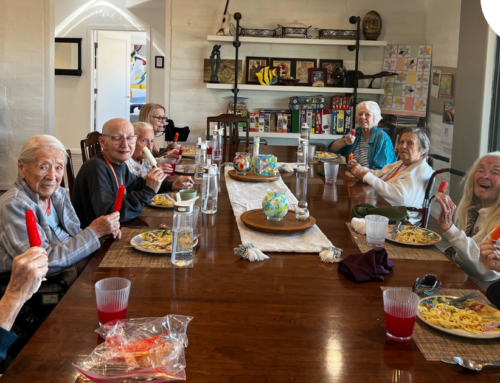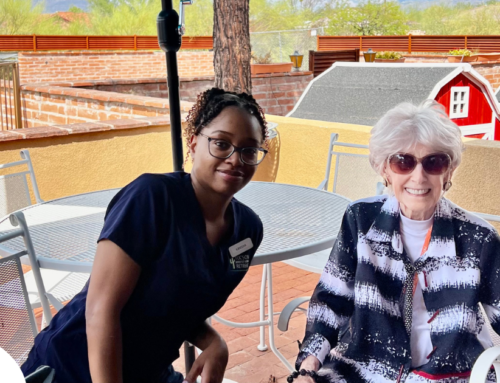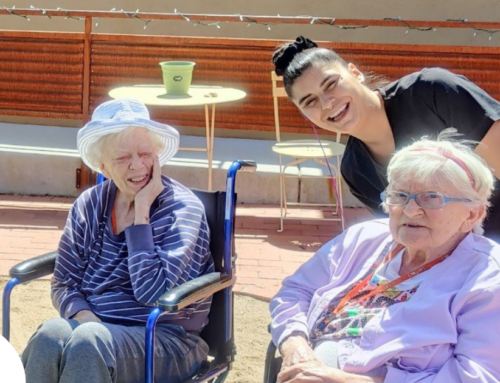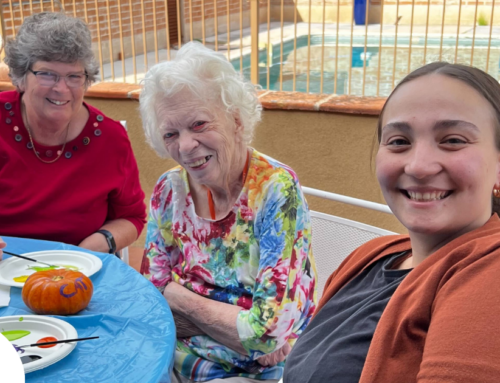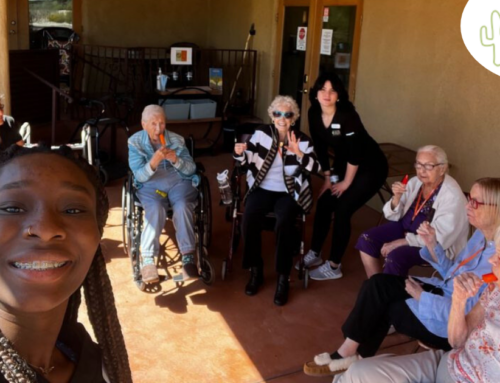The Value of Respite Care for Supporting Caregivers
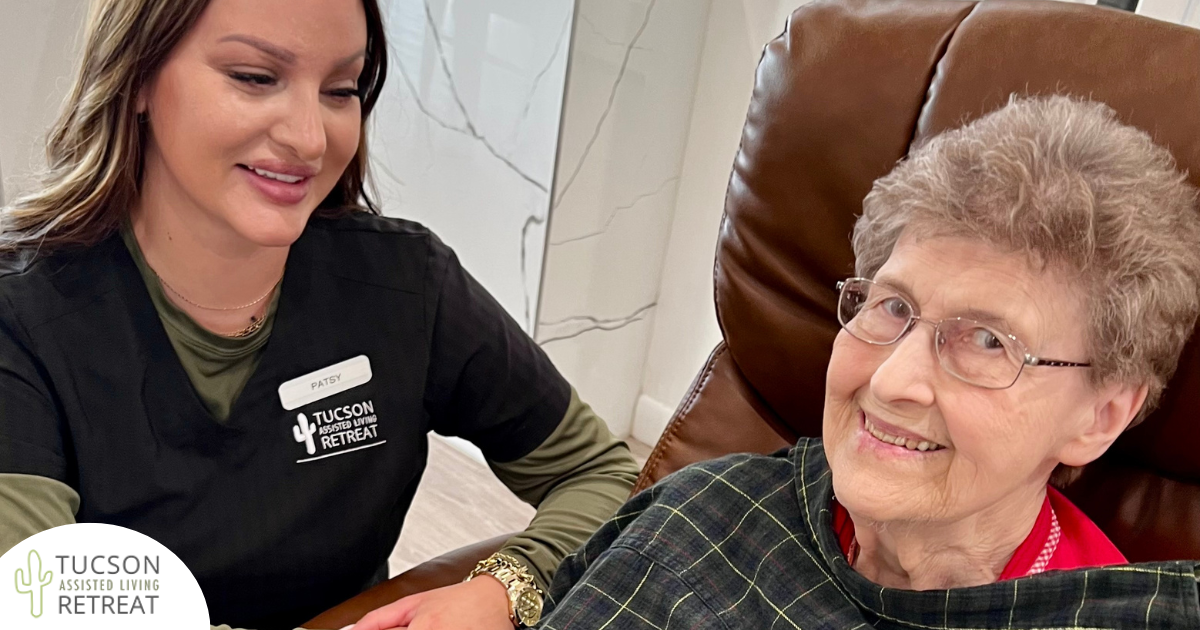
While being a family caregiver is a noble and selfless cause, the physical and emotional toll can be overwhelming. Seniors in a community like Tucson, AZ often rely on friends and family members for their care, which can place a significant burden on these individuals. Respite care offers a valuable solution by providing temporary relief and support for caregivers.
As a caregiver neglecting their self-care needs, read on to learn more about the importance of respite care and why seeking respite care services through an assisted living facility makes perfect sense.
What Are the Signs and Symptoms of Caregiver Burnout?
Being a family caregiver is highly gratifying and equally challenging. While it is natural to want to provide the best care possible for loved ones, the demands of caregiving can sometimes lead to stress, fatigue, and even full-blown burnout. Recognizing the “red flags” of caregiver burnout is essential for maintaining the well-being of both caregivers and care recipients.
Signs and symptoms of caregiver burnout include:
Physical Exhaustion
One of the primary signs of caregiver burnout is physical fatigue. Constantly attending to the needs of a loved one while managing a career and household can drain your energy reserves, resulting in persistent tiredness, difficulty sleeping, and lowered immunity. You may find it challenging to complete daily tasks or experience frequent headaches, muscle tension, or stomach issues.
Emotional and Mental Strain
Caregiving can take an emotional toll, leading to feelings of sadness, anxiety, or irritability. Caregivers may experience mood swings, increased sensitivity, or a sense of hopelessness. Difficulty concentrating, racing thoughts, and forgetfulness are also common signs of emotional and mental strain.
Social Isolation
The demands of caregiving often interfere with social connections. Caregivers may find themselves avoiding social activities or neglecting relationships due to time constraints or feelings of guilt. Social isolation can exacerbate feelings of loneliness, contributing to caregiver burnout.
Neglected Self-Care
Caregivers often prioritize their loved ones’ needs over their own, neglecting self-care activities. This downward spiral may include failing to get enough exercise, skipping meals, or not seeking medical attention when necessary. Neglected self-care can profoundly impact a caregiver’s physical and emotional well-being.
Substance Dependency and Abuse
Caregivers sometimes rely on substances such as alcohol, illicit drugs, or prescription medications to cope with stress and emotional strain. Increased reliance on substances as a coping mechanism is a red flag for caregiver burnout and requires immediate attention.
What is Respite Care?
Respite care refers to short-term relief for caregivers, allowing them to take a break from their caregiving responsibilities. It allows tired caregivers to recharge, tend to their personal needs, and maintain a healthy work-life balance. Respite care can be provided in various settings, including one’s home, adult day centers, or residential care facilities.
How Respite Care Supports Family Caregivers in Tucson, AZ
Ignoring the signs and symptoms of caregiver burnout will not make them go away. Conversely, allowing respite caregivers to step in temporarily will provide you with these benefits:
Physical and Emotional Well-being
Caring for an aging or disabled loved one can take a toll on a caregiver’s physical health. The responsibilities of lifting, assisting with mobility, and managing medical needs can lead to exhaustion and strain. Respite care allows caregivers to rest and rejuvenate, reducing the risk of burnout and associated health issues.
Emotionally, caregivers often experience stress, anxiety, and feelings of isolation. Respite care offers them the opportunity to engage in activities they enjoy, spend time with friends, or simply relax. Taking a break can improve mental well-being and help caregivers return to their roles with renewed energy and enthusiasm.
Helps Nurture Relationships
The demands of caregiving can sometimes strain relationships with other family members, friends, partners, and spouses. Respite care gives caregivers the time and freedom to reconnect with loved ones and maintain personal relationships. By maintaining healthy relationships, caregivers can establish a strong support system and prevent feelings of isolation.
Promotes Self-Care
Caregivers often prioritize the needs of loved ones above their own, compromising their personal well-being. Respite care encourages caregivers to practice self-care by engaging in activities that bring them joy and fulfillment. Whether pursuing a hobby, exercising, or enjoying a quiet moment, respite care allows caregivers to prioritize their needs.
Why Seek Respite Care at an Assisted Living Facility?
As one popular respite care option, assisted living facilities provide residents with personalized care and support. Most assisted living communities offer respite care services to accommodate short-term stays for individuals needing temporary care.
These respite care services benefit seniors and families by offering these amenities:
Personalized Care
Assisted living communities provide individual service plans (ISPs), ensuring residents receive the support they need during their respite stay. Trained staff members assist with activities of daily living, medication management, and healthcare needs.
Social Engagement
Seniors in respite care can participate in various social activities and programs organized by the assisted living facility. These opportunities allow them to interact with other residents, fostering a sense of community and reducing feelings of loneliness.
Nutritious Meals
Assisted living facilities prioritize nutrition by offering well-balanced meals and accommodating dietary restrictions. During respite care stays, caregivers can be confident that their loved ones are receiving proper nutrition and hydration.
Safety and Security
Assisted living facilities provide a safe and secure environment for seniors. With 24/7 supervision and emergency response systems, caregivers can have peace of mind knowing that their loved ones are in a supportive and secure setting.
In conclusion, respite care is one way to promote the overall well-being of caregivers. By providing temporary relief and support, respite care allows caregivers to prioritize self-care, maintain relationships, and prevent burnout. Assisted living facilities play a crucial role in offering respite care services, providing a safe and secure environment with personalized care plans and social engagement opportunities.
By recognizing the importance of respite care and utilizing these services, caregivers can find the balance they need to continue providing quality care for their loved ones.
Dignified Residential Respite Care Services for Seniors in Tucson, AZ
At Tucson Assisted Living Retreat in Tucson, AZ, we’re not your average, run-of-the-mill assisted living community. Our team of professionals provides compassionate and personalized senior care, ensuring our residents maintain their independence with the dignity and respect they deserve. We work with an extensive network of care partners while offering assistance with ADLs, coordinating healthcare services, and creating a warm, nurturing environment that feels a lot like home.
Because every senior deserves to live life to the fullest, our facility’s amenities include 24-hour emergency care, leading-edge safety and security measures, and a plethora of onsite and offsite social and recreational activities. Regardless of age or physical limitations, our staff is committed to providing the love and support our residents need to make their golden years truly golden. For more information about our assisted living facility or senior care services, visit us at tucsonassistedlivingretreat.com now.
Never miss a post...

